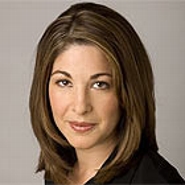
On Monday, April 13, award-winning journalist Naomi Klein presented a lecture on her best-selling book, The Shock Doctrine: the Rise to Disaster Capitalism, to the Hamilton Community. The event was co-sponsored by the Kirkland Endowment and the Dean of Faculty.
Klein began by outlining the contemporary economic crisis and linking it to her definition of the "shock doctrine" and "disaster capitalism". She noted that the depth, scope and speed of the current crisis have caused a rupture in modern society. She stated, "We aren't who we thought we were but not sure who we will be." The crippling economic conditions have thus created a global state of shock. She acknowledged that in places undergoing a crisis situation, most notably Iraq, New Orleans after Hurricane Katrina and Sri Lanka, there have been concerted attempts to exploit the crisis by means of rapidly selling land, deregulating the financial sector, and so on. This deliberate shock exploitation that follows a period of crisis is what Klein coins "disaster capitalism."
Given that the shock doctrine and disaster capitalism feeds on crisis exploitation, Klein asserted that we must be familiar with similar historical examples in order to anticipate this tactic and resist it. Klein then linked her concept of the shock doctrine with history, citing examples from The Great Depression and society's method of coping with that crisis, the rapid deregulation of the financial sector in Latin America, as well as the U.S. economic crisis in the 70s which gave rise to hyperinflation. She claimed that the rapid economic and societal reconstruction that resulted from these situations may in fact never have taken place if a crisis was not imminent.
According to Klein, crises such as September 11th and the Iraq War inhabited all the trappings of the shock doctrine. In the looming future of the current economic crisis, Klein maintains that there is a big question before us: Are they doing it again in the midst of crisis?
Although Klein acknowledged that the answer to this question is a complex one, she noted that by examining past examples of disaster capitalism, our society must work to combat the effects of the shock doctrine.
Klein is a former Miliband Fellow at the London School of Economics and holds an honorary Doctor of Civil Laws from the University of King's College, Nova Scotia. Her first book, No Logo: Taking Aim at the Brand Bullies, was also an international bestseller, translated into more than 28 languages. A collection of her work, Fences and Windows: Dispatches from the Front Lines of the Globalization Debate, was published in 2002.
-- by Danielle Raulli '10
Klein began by outlining the contemporary economic crisis and linking it to her definition of the "shock doctrine" and "disaster capitalism". She noted that the depth, scope and speed of the current crisis have caused a rupture in modern society. She stated, "We aren't who we thought we were but not sure who we will be." The crippling economic conditions have thus created a global state of shock. She acknowledged that in places undergoing a crisis situation, most notably Iraq, New Orleans after Hurricane Katrina and Sri Lanka, there have been concerted attempts to exploit the crisis by means of rapidly selling land, deregulating the financial sector, and so on. This deliberate shock exploitation that follows a period of crisis is what Klein coins "disaster capitalism."
Given that the shock doctrine and disaster capitalism feeds on crisis exploitation, Klein asserted that we must be familiar with similar historical examples in order to anticipate this tactic and resist it. Klein then linked her concept of the shock doctrine with history, citing examples from The Great Depression and society's method of coping with that crisis, the rapid deregulation of the financial sector in Latin America, as well as the U.S. economic crisis in the 70s which gave rise to hyperinflation. She claimed that the rapid economic and societal reconstruction that resulted from these situations may in fact never have taken place if a crisis was not imminent.
According to Klein, crises such as September 11th and the Iraq War inhabited all the trappings of the shock doctrine. In the looming future of the current economic crisis, Klein maintains that there is a big question before us: Are they doing it again in the midst of crisis?
Although Klein acknowledged that the answer to this question is a complex one, she noted that by examining past examples of disaster capitalism, our society must work to combat the effects of the shock doctrine.
Klein is a former Miliband Fellow at the London School of Economics and holds an honorary Doctor of Civil Laws from the University of King's College, Nova Scotia. Her first book, No Logo: Taking Aim at the Brand Bullies, was also an international bestseller, translated into more than 28 languages. A collection of her work, Fences and Windows: Dispatches from the Front Lines of the Globalization Debate, was published in 2002.
-- by Danielle Raulli '10
Posted April 14, 2009
